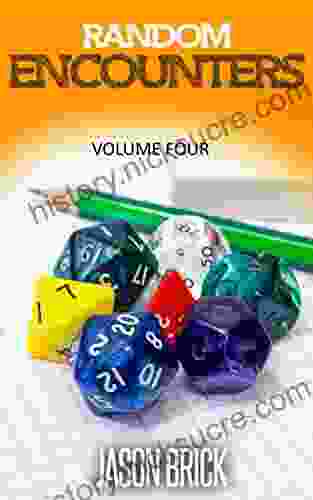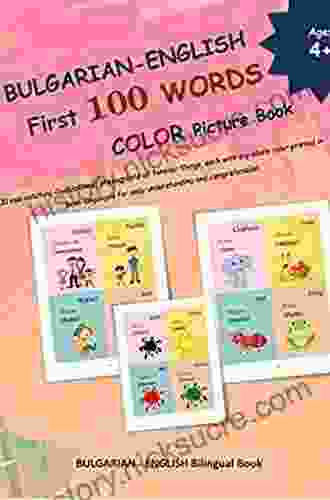Role-playing games (RPGs) offer a limitless realm for creativity and thrilling adventures. To enhance your gameplay and create unforgettable experiences, here are 20 extraordinary ideas that will ignite your imagination and add depth to your campaign.
4.5 out of 5
| Language | : | English |
| File size | : | 3271 KB |
| Text-to-Speech | : | Enabled |
| Screen Reader | : | Supported |
| Enhanced typesetting | : | Enabled |
| Print length | : | 43 pages |
| Lending | : | Enabled |
I. Character Development
- Multi-Dimensional Backgrounds: Develop rich backstories for your characters, exploring their motivations, fears, and aspirations. This depth will enhance their decision-making and interactions.
- Moral Dilemmas: Introduce situations that challenge your characters' morality. Force them to weigh ethical considerations against personal desires, fostering character growth and development.
- Character Arcs: Plan out transformative trajectories for your characters over the course of the campaign. Set goals for their growth, conflicts that shape their personalities, and moments of triumph that define their legacies.
II. Storytelling Techniques
- Immersive Descriptions: Use vivid language to paint a detailed picture of your game world, engaging players' senses and transporting them into the realm of your imagination.
- Plot Twists: Introduce unexpected events and revelations that keep players on edge. Subvert their expectations and create a sense of unpredictability that drives the story forward.
- Emotional Resonances: Evoke strong emotions in your players by tapping into relatable themes, personal struggles, and profound moments that resonate with their own experiences.
III. Adventure Enhancements
- Environmental Hazards: Incorporate treacherous terrain, extreme weather conditions, or natural disasters to challenge your players' abilities and add an element of suspense to their quests.
- Puzzles and Riddles: Introduce mind-bending puzzles or riddles that require players to think critically and collaborate to solve, adding a unique layer to encounters.
- NPC Relationships: Establish complex relationships between non-player characters (NPCs) and players. Allow NPCs to evolve, betray, or assist characters, creating dynamic interactions that shape the story.
IV. World-Building Elements
- Detailed Lore: Craft a rich history and elaborate mythology for your game world. Unveil ancient secrets, forgotten civilizations, and legendary artifacts that enhance the immersion and provide context for players' adventures.
- Interactive Environments: Allow players to interact with the environment in meaningful ways. Create destructible objects, movable barriers, or hidden passageways to encourage exploration and foster a sense of agency.
- Dynamic Events: Introduce random events or quests that occur spontaneously, keeping players engaged and adding an element of unpredictability to the gameplay.
V. Other Epic Ideas
- Alternate Realities: Explore parallel dimensions or introduce alternate versions of characters to create unexpected twists and expand the scope of your campaign.
- Epic Bosses: Design formidable opponents that test your players' limits. Create epic boss battles with unique abilities, strategies, and challenging environments.
- Political Intrigues: Introduce factions, alliances, and political struggles within your game world. Allow players to navigate treacherous alliances, negotiate treaties, and influence the course of events.
Harnessing these 20 epic ideas will transform your role-playing game into an unforgettable experience. By adding depth to your characters, employing captivating storytelling techniques, enhancing adventures, crafting immersive worlds, and introducing unexpected elements, you will create a campaign that captivates your players, ignites their imaginations, and leaves them longing for more. Remember, the only limit is your own imagination. Embrace these ideas, forge your own epic tales, and let the adventure unfold.














































































































































































































































































































































































































































































































































